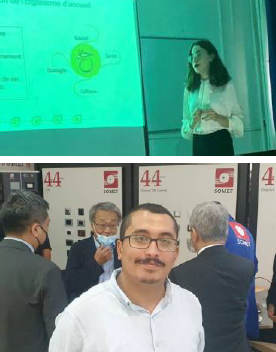
ensure sustainable consumption and production patterns
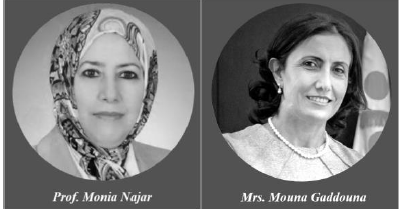
The University of Tunis El Manar (UTM) has made notable advances in renewable energy and sustainability, exemplified by its green hydrogen initiative in collaboration with German institutions, particularly within a Tunisian-Bavarian partnership. This project utilizes Tunisia’s abundant solar and wind resources to produce green hydrogen, a clean and innovative energy carrier.
Drawing on its expertise in chemical engineering and renewable energy, UTM leads research aimed at reducing greenhouse gas emissions and strengthening national energy security. Recognized internationally for its commitment to quality education and sustainable development, UTM has enhanced its academic reputation and appeal to global partners and students in these strategic domains. These efforts illustrate the university’s dedication to addressing environmental and energy challenges through innovative solutions while fostering international collaborations for a sustainable future.
Complementing these efforts, the RESMYLE project focuses on educational resources for waste and paper valorization. It seeks to increase environmental awareness and promote sustainable practices among youth in the Mediterranean region. Activities include the development of engaging, cost-effective materials on waste management and recycling, as well as the creation of practical “schools for sustainable development” that provide hands-on experiences and equip students with skills for careers in eco-friendly sectors.
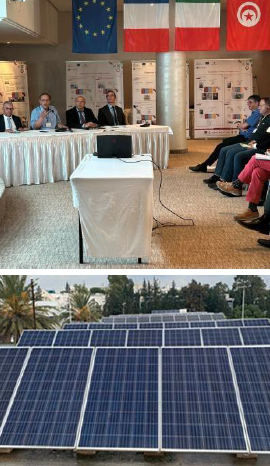
The University of Tunis El Manar (UTM) actively engages in international initiatives aimed at enhancing waste management practices. These collaborations include educational programs designed to raise awareness about waste generation, encourage recycling, and support the transition toward a circular economy.
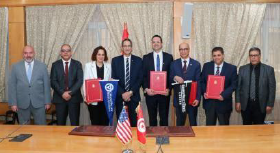
In March 2023, the University of Tunis El Manar (UTM) took part in the Heinrich Böll Stiftung Summer School dedicated to solid waste management in the MENA region. The program featured workshops on zero-waste principles and discussions addressing the environmental and social impacts of plastic pollution. Participants examined community-based waste management models and were encouraged to design interdisciplinary approaches to sustainable waste governance.
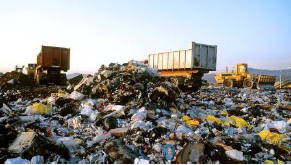
The University of Tunis El Manar (UTM) promotes transparency and sustainable consumption within its dining services by providing detailed ingredient lists for all meals. This initiative enables students, faculty, and staff to make informed dietary choices while fostering a culture of health awareness and responsible consumption.
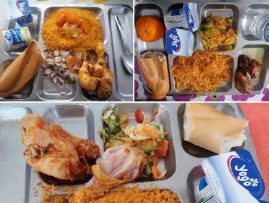
The University of Tunis El Manar (UTM) continues to advance research and innovation in sustainability, with several projects addressing pressing environmental challenges. Ongoing studies focus on innovative approaches to waste management, particularly municipal solid waste, aiming to enhance collection, segregation, and recycling practices within local communities. During 2022 and 2023, UTM also led initiatives promoting sustainable fishing practices that integrate environmental responsibility and gender equality. Activities included workshops encouraging the participation of women in the fishing sector and promoting responsible harvesting methods. Researcher Emna Benkahla underscored the effects of climate change and pollution on marine ecosystems, advocating for sustainable solutions to safeguard Tunisia’s fishing economy and coastal resilience. The university’s Living Lab concept further strengthens its commitment to collaborative innovation across domains such as energy and environmental sustainability. By fostering cooperation between academia, industry, and communities, the Living Lab promotes hands-on experimentation and co-creation of practical solutions. A flagship example, the FASTER Living Lab, focuses on climate change adaptation in the agricultural sector. It facilitates knowledge exchange between researchers and practitioners through participatory workshops, supporting the design of effective and locally relevant adaptation strategies.
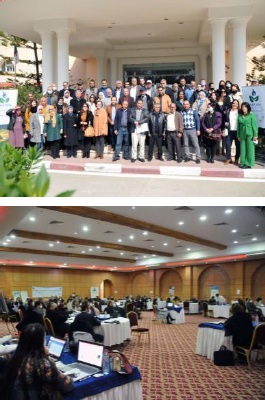
In 2022, the FASTER project conducted a series of workshops designed to train Farm Advisory System (FAS) agents and facilitate knowledge transfer to farmers. These sessions focused on developing and implementing adaptation strategies to mitigate the impacts of climate change, thereby strengthening the resilience of agricultural communities.
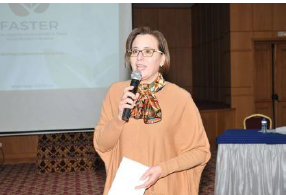
UTM has maintained a strong emphasis on research collaboration between Tunisian stakeholders and European partners, particularly within the Horizon 2020 framework. These efforts aim to enhance Tunisia’s engagement in EU-funded research and innovation programs, with more than €10 million dedicated to supporting collaborative projects and advancing scientific excellence.
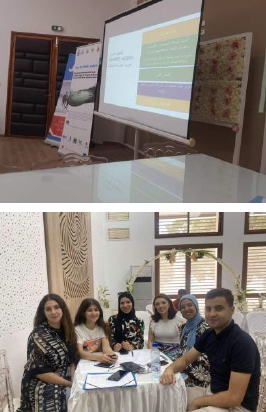
The concept of “Jannah” is a citizen-led initiative, conceived by Mouna Gaddouna and inspired by the continuous improvement philosophy of Kaizen. It aims to foster human connections and community engagement for environmental protection and social cohesion. The project organizes events that bring together associations, educational institutions, local government, citizens, and businesses. Its activities include transforming neglected sites—such as turning a landfill into a garden—and conducting educational workshops to sensitize children and youth to ecological balance. The initiative seeks to empower individuals to become active participants in change by taking small, practical steps within their local communities.
In partnership with the ISTMT and led by PhD candidate Sabri Barbaria, the platform jannah.com.tn was developed to put the Jannah concept into action. It is built on principles of continuous, small-step improvement and the involvement of all community members in identifying and solving local problems. The initiative emphasizes individual responsibility, endless progress, and accessible, collaborative learning, turning education into a shared, participatory effort.
